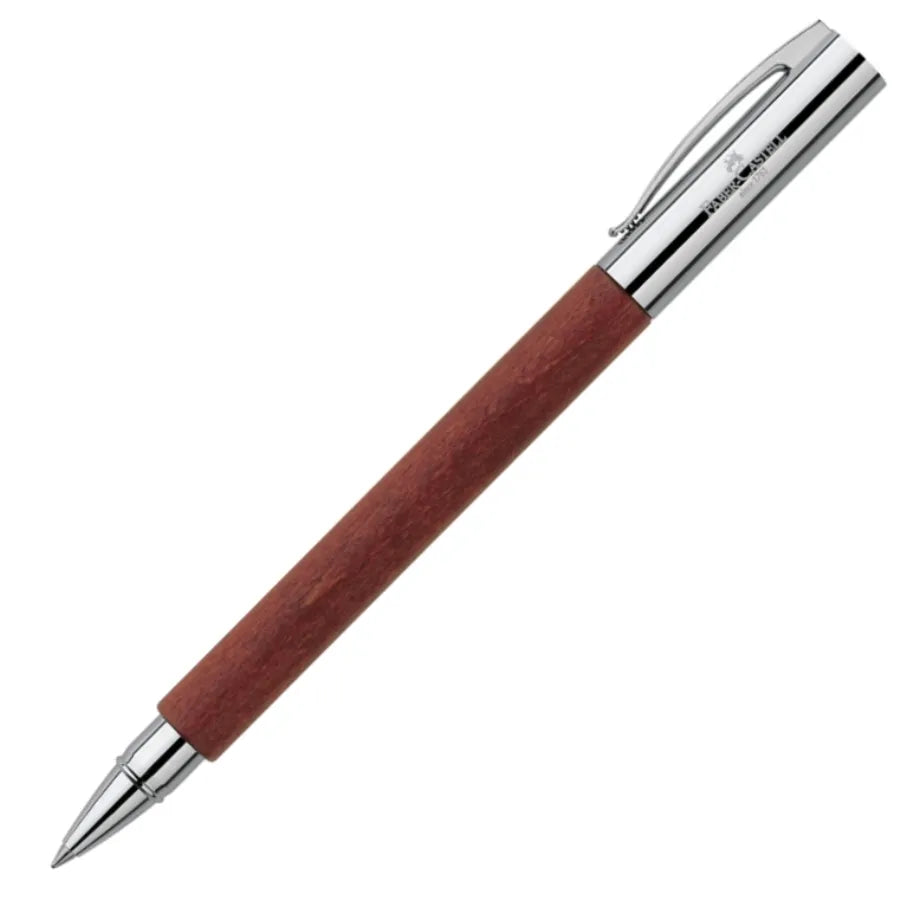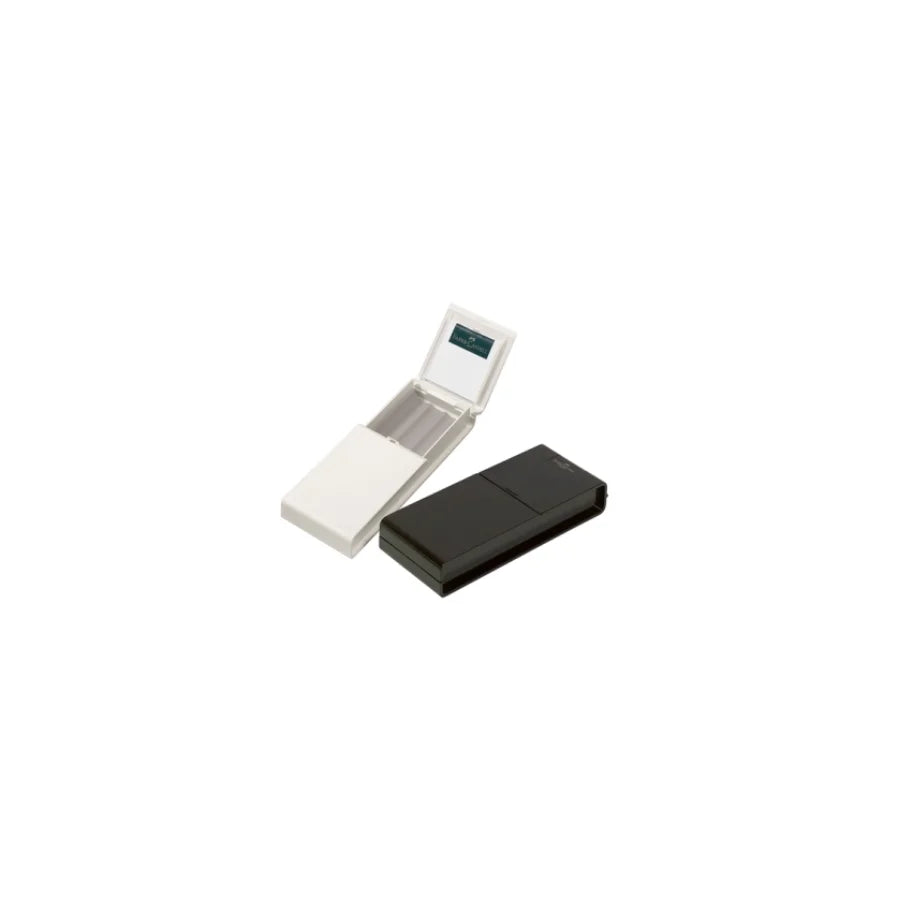Faber Castell Ambition Pearwood Rollerball Pen
SKU: 14-81-11Faber Castell Ambition Pearwood Rollerball Pen
Couldn't load pickup availability
Faber Castell Ambition Pearwood Rollerball Pen
About the Finish
Made of natural pearwood with chrome-plated metal trims.
About the Pen
Roller ball pen.
Has a spring loaded clip.
Pull on and off cap.
The cap fits neatly on the other end of the pen while writing.
Fitted with a black refill with ceramic tip, quick-drying ink.
Size
Length: 140 mm
Diameter: 10 mm
Weight: 34 g
All Faber Castell Ambition Pens come with a full 2 year guarantee.
The Faber Castell Ambition Rollerball Pen in Pearwood is presented in a gift box.
About Faber Castell Ambition Pens
The Faber Castell Ambition pen design catches the eye immediately. One cannot fail to be impressed by its clear lines and selected materials. They are available in precious resin, coconut wood, pearwood and stainless steel. The black barrel made of brushed resin contrasts to good effect with the nose and end piece of gleaming chrome-plated metal. All Faber Castell Ambition writing implements are fitted with a spring clip to hold them safe in a pocket. In the case of the roller-ball pen and fountain pen, the cap can be placed on the other end while writing.
About Faber Castell Pens
Faber-Castell was founded in 1761 at Stein near Nuremberg by cabinet maker Kaspar Faber as the A.W. Faber Company, and has remained in the Faber family for eight generations. In the 1850's Faber started to use graphite from Siberia and cedar wood from Florida to produce its pencils. As early as the 19th century, A.W. Faber opened branches in the major cities. This meant that the company was always close to the customer and ensured that it can develop its products in line with demand. In order to be present at the first World Exhibition in 1851, A.W. Faber opens a branch in London. The company's own business premises is built on Victoria Street in 1873. The capital of the British Empire is an important centre for overseas trade. In 1877 A.W. Faber opens a branch in Berlin and then opens an elegant business premises on the prominent Friedrichstraße in 1884. The "Faberhaus" building is completely destroyed in the 2nd World War. In 1925, Count Alexander von Faber-Castell begins building a modern production complex. This makes manufacturing processes more efficient and production can be increased. The building with its enormous U-shaped design is still used for pencil production to this day.
Share




